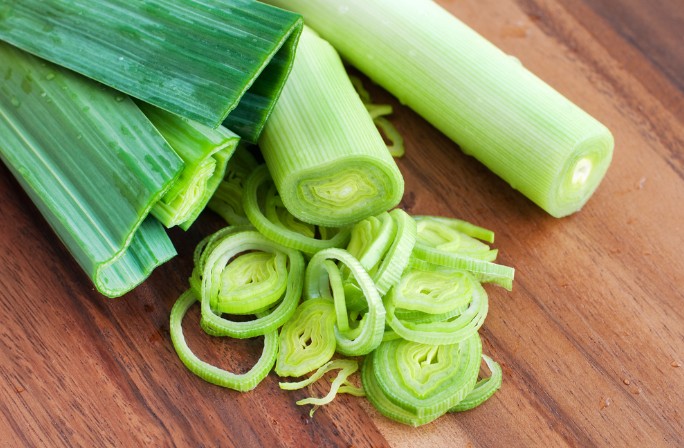Rosh Hashanah All Year: The Unique Benefits of Leeks
Leeks, typically known only for Rosh Hashanah, are worth trying at other times. They help prevent cardiovascular diseases, diabetes, and cancer and improve brain function, nervous system health, memory, and mental well-being. Tip: Eat them raw, not cooked.

One of the foods that grace the table on the eve of Rosh Hashanah is the leek. Beyond its symbolic significance during this time, does the leek hold nutritional value? It belongs to the allium family, which includes garlic, onions, shallots, and more. As a member of this family, it inherits its nutritional qualities.
Firstly, leeks can help balance LDL cholesterol levels and raise the desirable HDL cholesterol. This supports the prevention of cardiovascular diseases, high blood pressure, diabetes, and more. Vegetables from the allium family have been found to reduce the risk of cancers such as prostate and colon cancer. Research suggests that cancer cases are less common in countries with high garlic consumption. Furthermore, the risk of stomach cancer is 40 times lower in those who consume large amounts of garlic and onions.
Leeks also contain kaempferol, a potent antioxidant found in onions, broccoli, and spinach. Studies show that women with diets rich in kaempferol have a 40% lower risk of developing ovarian cancer compared to those whose diets lack this nutrient. Leeks boast a good amount of vitamin C, iron, and folic acid.

Leeks contain significant amounts of an often overlooked mineral – manganese. What's the significance of manganese? It plays various roles, including being essential for brain function and overall nervous system health, affecting memory and offering positive effects for neurological conditions like Alzheimer's and schizophrenia. While manganese is found in leeks, it is also present in nuts, grains, greens, and particularly in avocados.
Like its relatives such as the onion, the leek contains sulfur compounds. Sulfur compounds are crucial for cancer prevention and assist in reducing blood sugar. Therefore, leeks are considered good food for those with high blood sugar.
Leeks are typically eaten cooked, but heat damages various vitamins. Thus, it's recommended to eat them raw in salads, as you can also consume onions. The noteworthy advantage is that leeks are not as pungent, making them palatable and easy to eat for most people.
Eliahu Shechter is an iridologist and natural healer

